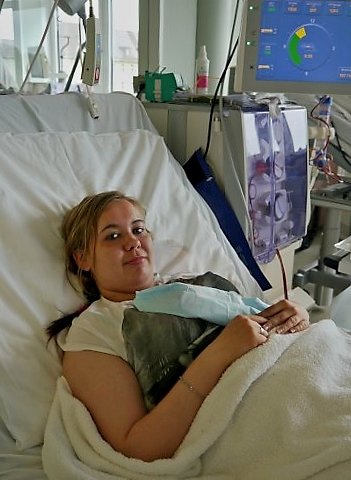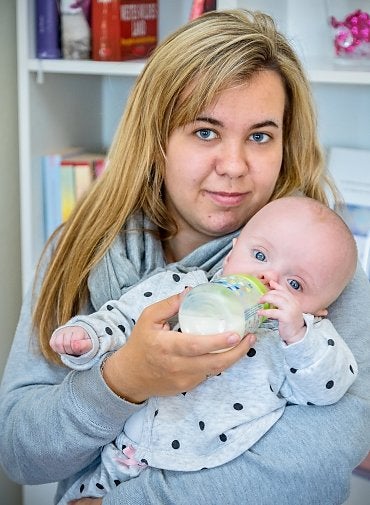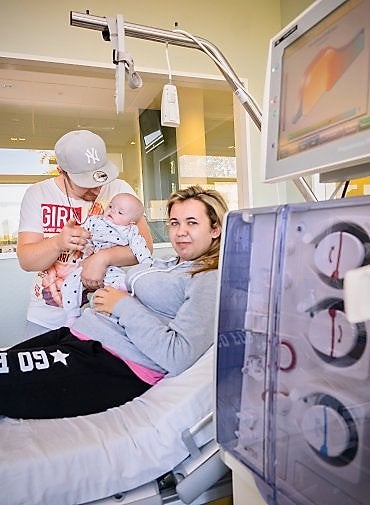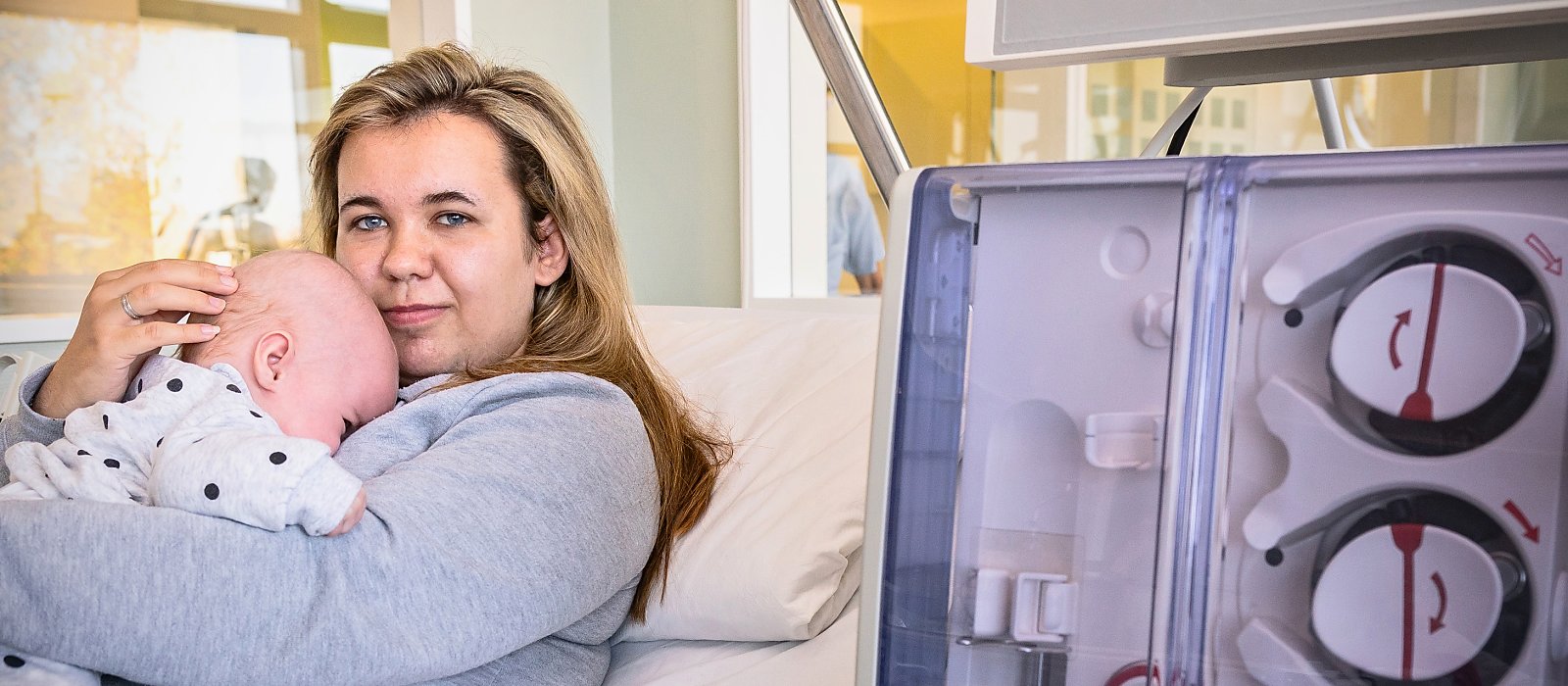
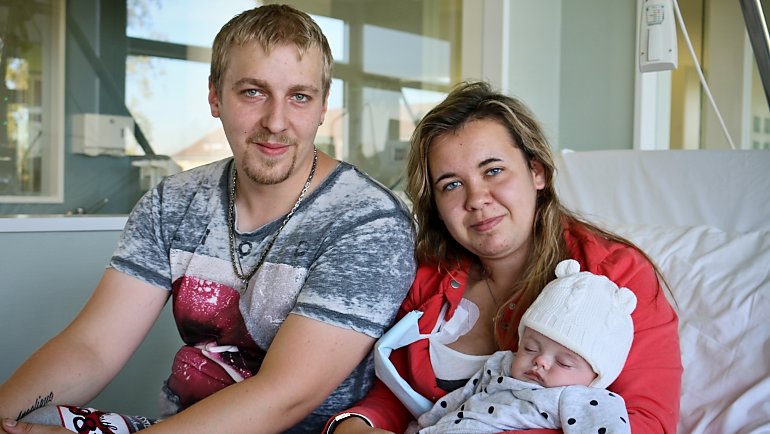
A new baby is one of life’s greatest gifts, but for Jaqueline and her husband, Evgeny, the birth seemed almost like a miracle. Jaqueline had been struck by a car as she rode a motor-scooter home from her job in hotel management in 2013, and then spent 28 days in a coma. Her spleen was ruptured and had to be removed; worse still, the severe blood loss caused a shock that led to permanent kidney failure.
(Published: February 2016)
Jaqueline, who also suffered numerous broken bones and a cerebral hemorrhage, had to undergo more than 10 operations at HELIOS Hospital Hildesheim, near Hanover in Germany. In total, she spent about half a year in the hospital.
But while her bones eventually healed, Jaqueline has needed dialysis since the accident to replace her kidney function. Three times a week, for four hours each time, she is connected to a dialysis machine that pumps her blood through a specialized filter – a dialyzer – to remove toxins.
These regular dialysis sessions not only drain a patient’s strength, but cause hormonal changes that affect ovulation. For this reason, the vast majority of women on dialysis cannot conceive. “Only about 1 percent of female patients of child-bearing age will be able to get pregnant,” explained Dr. Burkhard Kreft, Chief Physician of the Nephrology and Dialysis Clinic at HELIOS Hospital Hildesheim. “And even when dialysis patients do manage to get pregnant, about two-thirds of them will lose the child. For Ms. Sinicyn to get pregnant the natural way was very unusual. That made us all the more happy when this sweet, healthy baby was born.”
The challenging situation for dialysis patients who want to have a baby was confirmed by Professor Bernard Canaud, Chief Medical Officer of Fresenius Medical Care, the world’s largest provider of renal care. “Worldwide, only a few hundred cases have been reported of dialysis patients who were able to deliver a live birth despite prematurity, low birth weight and other related health issues,” said Prof. Canaud.
It was not an easy pregnancy for Jaqueline – and was a challenging one for her doctors. Since pregnancies among dialysis patients are so rare, the doctors had little specialist literature outlining other specialists’ experiences. And as taxing as dialysis can be for the patient, it is even more so for the unborn baby. To avoid complications, the frequency of Jaqueline’s treatments had to be doubled at certain times: in order to prevent her urea level from rising to a point that would be potentially hazardous to the fetus, she had to undergo as many as six, four-hour dialysis sessions weekly instead of the usual three.
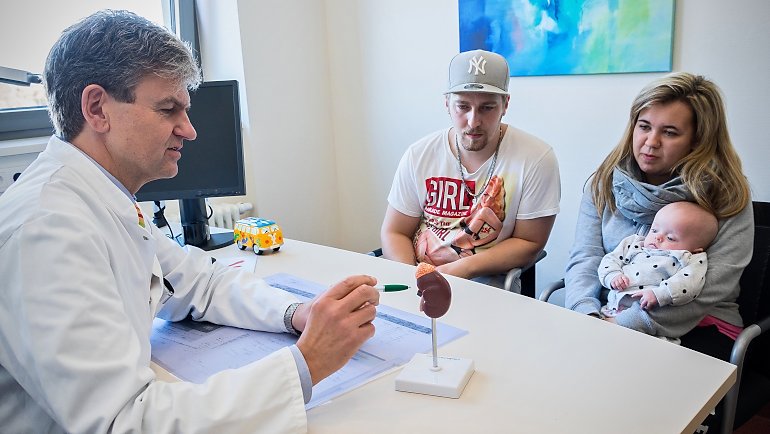
The big day finally arrived – two months early. After a delivery by Cesarean section in HELIOS Hospital Hildesheim, the newborn Angelique – only 41 centimeters (16 inches) in length and weighing just 1,230 grams (2.7 lbs.) – was rushed to the ward for premature babies. In an incubator, she was attached to a respirator and fed through a stomach tube.
“We visited her every day and spent as much time as possible by her side,” said proud father Evgeny. Finally, two months after the birth, the day finally came when he and Jaqueline could take Angelique home with them. She had doubled in weight, and could now be fed from a bottle.
“We are really happy and grateful that the little one is doing so well,” Jaqueline said. “We’re happy just to be a completely normal family, and loving the time together.”
Pictures: © HELIOS Hospital Hildesheim and Kai Kapitän


